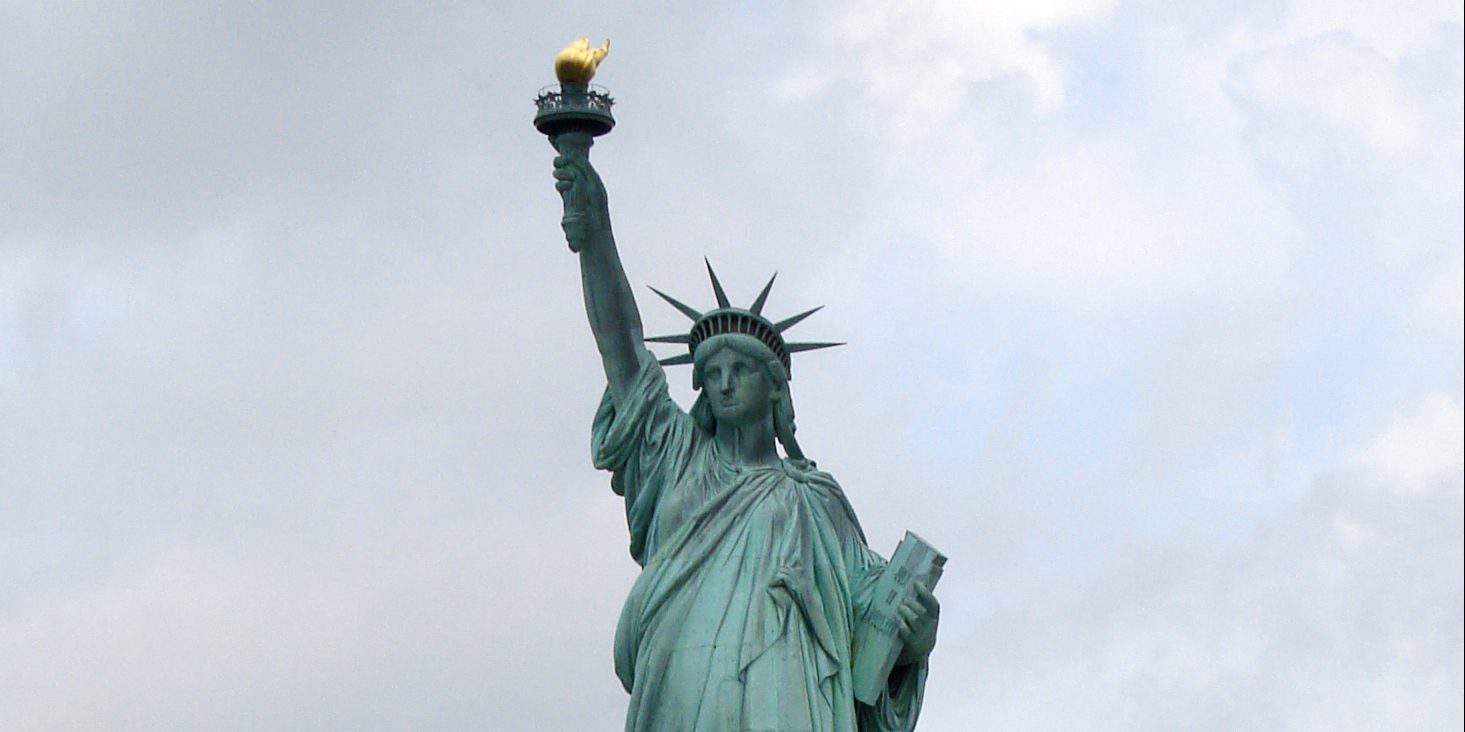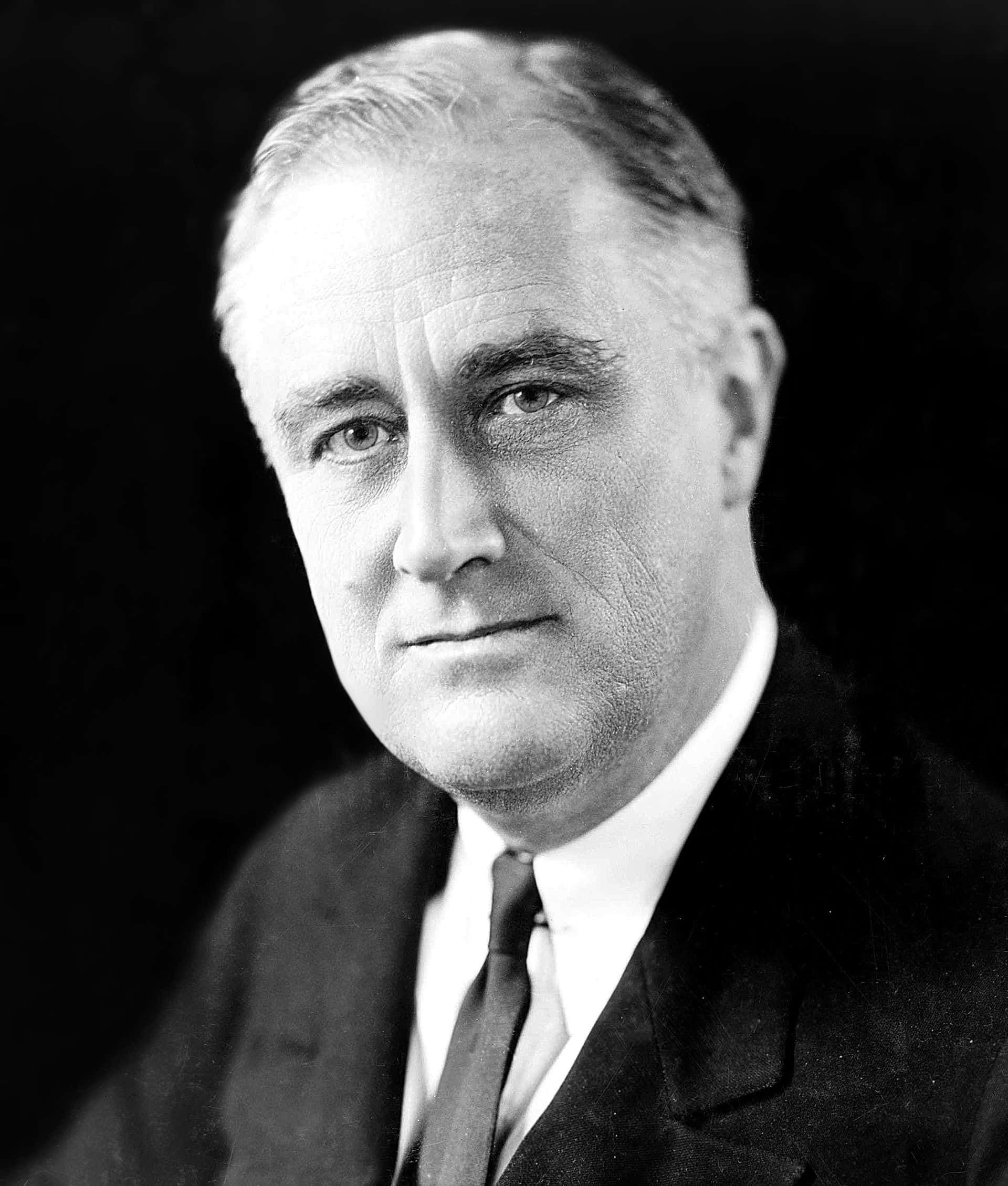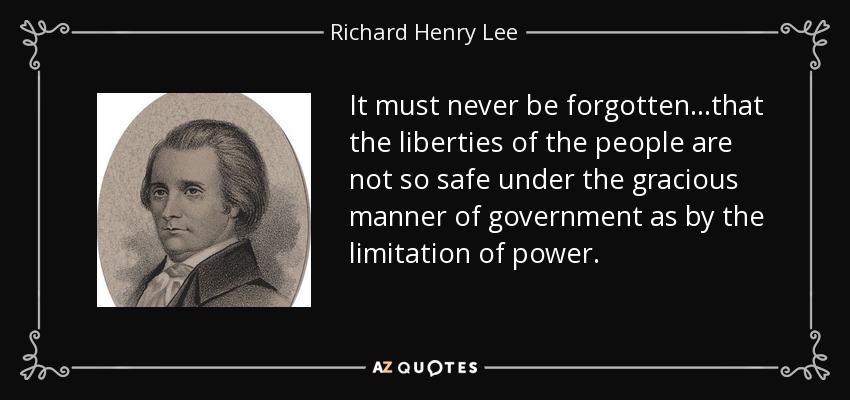From Liberty to an Entitlement Mentality: The Deadly Enticement of Government Help
Liberty means responsibility. That is why most men dread it.
—George Bernard Shaw—
I predict future happiness for Americans, if they can prevent the government from wasting the labors of the people under the pretense of taking care of them.
—Thomas Jefferson—
Part 2 is available here.
On January 6, 1941, a mere 11 months before Pearl Harbor would be bombed and America would enter World War 2, President Franklin Delano Roosevelt gave his State of the Union speech.
Later it became known as the “Four Freedoms Speech,” because near the end of his address, Roosevelt upheld “four essential human freedoms”—freedom of speech and expression, freedom of religion, freedom from want, and freedom from fear. You can read and hear the seminal portion of his presentation on this page. For your convenience, you also can hear it here.
 In the years that followed, as American soldiers fought valiantly against tyranny around the world, the Four Freedoms motivated the public to support the war effort with money, time, energy, and many other resources. Beloved artist Norman Rockwell, who was in his late forties at the time (in this picture, he is about 27 years old), created an oil painting to represent each one. The images helped raise more than 132 million in war bonds. War is a terrible reality. Combat is horrific beyond words. Rockwell’s images undoubtedly helped Americans look beyond the carnage and sacrifice to focus on the ideals for which soldiers were laying down their lives every day. Later, these same principles would inspire Eleanor Roosevelt’s work on the United Nations’ Universal Declaration of Human Rights. The declaration includes the Four Freedoms.
In the years that followed, as American soldiers fought valiantly against tyranny around the world, the Four Freedoms motivated the public to support the war effort with money, time, energy, and many other resources. Beloved artist Norman Rockwell, who was in his late forties at the time (in this picture, he is about 27 years old), created an oil painting to represent each one. The images helped raise more than 132 million in war bonds. War is a terrible reality. Combat is horrific beyond words. Rockwell’s images undoubtedly helped Americans look beyond the carnage and sacrifice to focus on the ideals for which soldiers were laying down their lives every day. Later, these same principles would inspire Eleanor Roosevelt’s work on the United Nations’ Universal Declaration of Human Rights. The declaration includes the Four Freedoms.
Twenty sixteen marks the 75th anniversary of President Roosevelt’s speech. It is perhaps difficult for us to understand the weight that rested on the president’s shoulders when he spoke, but we need to try to appreciate the national climate in the United States as war continued to escalate on the other side of the world. FDR was challenging America’s isolationism. He was making the case for US involvement on the world stage. While engagement would be costly, the end result would be overwhelmingly positive. Go here to gain a broader understanding of the context and impact of Roosevelt’s 1941 State of the Union address. You also might want to watch this You Tube video. In it, Paul Sparrow, the director of the FDR Presidential Library and Museum, discusses the Four Freedoms speech and its impact.
The Four Freedoms are noble ideals that have stirred human emotion and encouraged millions of people to sacrifice for others—even people they never had met. We do well, however, to examine the Four Freedoms, which essentially are presented as rights, carefully. Certainly we never would want to hinder free expression or worship of God; nor would we wish want or fear on anyone. Still, we need to respond to these freedoms not just with our hearts, but also with our heads. We need to ask about each one, What does this freedom require on the part of a government and its people, and what will be the effects, both intended and unintended, of efforts to secure it? When we answer honestly, we discover a great deal more than our emotions have told us at the outset. Actually, we discover things contrary to what our emotions have said.
Freedom of speech and expression is one of the core principles enshrined in the United States Constitution through the First Amendment.
Freedom of worship also is guaranteed in the First Amendment. We should clarify that when Roosevelt was speaking of freedom of worship in his speech, he was by no means seeking to limit expressions of faith to houses of worship. Before his death, Charles Colson rightly warned against a move on the part of the Obama administration to uphold “freedom of worship” over the broader concept of “freedom of religion.” He urged Christians to be wary of the administration’s choice of words in light of its promotion of the militant LGBT agenda. Thus, the term freedom of worship is limiting in the modern context, while freedom of religion includes the right to practice one’s faith outside church walls—openly and in public. Colson explained he wasn’t referring to Roosevelt’s language: “The use of the term ‘worship’ in those days [around 1941] would not have had the significance it does today. There were virtually no cases threatening free exercise in the 30s and 40s. Every school had prayer and Bible studies; the presence of God was firmly lodged in our culture and in our collective consciousness. The rash of cases attacking public expressions of religion began in the late 40s into the 50s, and then hit us like a truck in the 60s. When Roosevelt used the phrase it was interchangeable. Today it is certainly not.”
We therefore see that these first two freedoms are rights guaranteed in the US Constitution. To secure them, government is primarily required to stay out of the way and to allow people to speak freely and practice their religious faith as they see fit. If citizens hinder or prevent individuals from exercising their rights of speech and worship, government’s role is to penalize them for violating others’ rights. With regard to the first two freedoms, little more is required of government than these things.
To secure freedom of speech and freedom of worship, government is primarily required to stay out of the way and to allow people to speak freely and practice their religious faith as they see fit.
Upon reflection, it isn’t difficult to see that the third freedom—freedom from want—is fundamentally different from the first two.* The difference is qualitative; it is not a difference of degree, but of kind. This doesn’t mean Roosevelt wasn’t making a legitimate point in 1941. He said freedom from want in world terms “means economic understanding which will secure to every nation a heathy peacetime life for its inhabitants—everywhere in the world.” FDR was right in indicating that economic policies matter. He also was right to speak against those policies of aggressor nations—most notably Germany—who were spending a great deal of money to build a war machine to take over Europe and its people. Even so, while the goal of reducing want was and is laudable, Roosevelt was saying people had a right to be free from want! This assumption gives government a task God never intended it to have. How are people’s needs to be met? According to Scripture, individuals are to work to provide for themselves and their families. Not everyone can; but everyone who can, should. You can take it to the bank: When government becomes engaged in working directly to eliminate want, it almost invariably does so through taxation and redistribution of wealth. This approach stifles creativity and productivity. It effectively kills citizens’ motivation to work hard and grow the national economy. With such motivation, however, a scenario unfolds that helps reduce poverty to a far greater extent than any plan relying on redistribution.
Put another way, want among a nation’s people can be effectively diminished when government, through its laws, encourages productivity and risk-taking, and when it allows the people to keep the larger portion of the money they earn through hard work. This means lower taxes, something President Roosevelt absolutely was not advocating (more on that in a moment). Those who cannot work, for whatever reason, can have their needs met through the generosity of those who can. This is what ought to be encouraged, not only by the government, but also by the church.
Star Parker, founder and president of the Center for Urban Renewal and Education (CURE), used to be addicted to welfare, but she now exposes its negative effects. Watch her explain in her own words why government is a terrible benefactor.
The fourth right is much like the third. To secure freedom from fear, government must actively intervene in the lives and the affairs of its people.* Do not misunderstand. Nations clearly have a duty to shore up defenses and to use them to keep their people safe from aggressors inside and outside their borders. In this sense, governments are legitimately engaged in minimizing fear.
Beware, however! Treating this as a right means obligating government in ways that empower it to interfere in people’s lives! Roosevelt spoke at a time when war was on the horizon, but many fears are not related to war. Just how far will government go to meet its citizens’ right to live fear-free lives? Consider that in business, no one can succeed without taking risks, something that is inherently frightening. So if a government eliminates fear, it eradicates success as well! This is bad enough, but we’re actually talking about more than business. The effort to wipe out fear, especially among a national population, inevitably will become a quest without end.
We indicated a moment ago that FDR was not recommending a tax cut. Indeed, he could not, given the last two of the Four Freedoms. While someone can make the case it was legitimate to raise taxes to pay for American involvement in the war—something the president may have felt was inevitable at this point—when speaking of tax increases he talked about a good deal more than a military buildup. Hear and read the president’s statements about the Four Freedoms in the larger context of his speech. This clip represents the last 7 minutes, 48 seconds of the 36-minute presentation.
The following quote frequently is attributed to Alexander Fraser Tytler, although no evidence exists in his writings it ever originated with him. Nevertheless, whoever said it was absolutely correct. We need to heed this warning and understand its implications.
A democracy is always temporary in nature; it simply cannot exist as a permanent form of government. A democracy will continue to exist up until the time that voters discover that they can vote themselves generous gifts from the public treasury. From that moment on, the majority always votes for the candidates who promise the most benefits from the public treasury, with the result that every democracy will finally collapse due to loose fiscal policy, which is always followed by a dictatorship.
The average age of the world’s greatest civilizations from the beginning of history has been about 200 years. During those 200 years, these nations always progressed through the following sequence:
• From bondage to spiritual faith;
• From spiritual faith to great courage;
• From courage to liberty;
• From liberty to abundance;
• From abundance to selfishness;
• From selfishness to complacency;
• From complacency to apathy;
• From apathy to dependence;
• From dependence back into bondage.
When the people of a nation believe they have a right to government “benefits,” they become intoxicated with everything the government is willing to offer. In turn, those in authority become intoxicated with the power they gain as an increasing number of people become dependent upon them. The more government “gives,” the more beholden recipients become. This is how a nation that began with liberty can be led into tyranny.
Again, to secure citizens’ rights of free speech and worship, the government primarily must stay out of people’s way. This is not so with the “rights” to be free of want and fear, nor is it true with a countless number of additional government “benefits” people have become conditioned to expect.
This discussion, I hope, has served to stimulate your thinking about rights. There are two kinds of rights, and in FDR’s Four Freedoms speech, we see both kinds. As we have indicated, the first two rights named by FDR represent a category that government has a legitimate role in working to protect. The last two are different. When a government works to secure for its people rights like these, it actually pushes the nation away from freedom and toward bondage. Let’s make it personal. It is so enticing—yet it is foolish—for us to look to government to provide almost everything. Keep in mind FDR spoke in 1941—75 years ago! Today we have gone so far down this road we even call government handouts entitlements. The term entitlements, of course, is another word for rights—“rights” America’s Founders never intended and never endorsed.
As Richard Henry Lee, signer of the Declaration of Independence from Virginia, once said, “It must never be forgotten…that the liberties of the people are not so safe under the gracious manner of government as by the limitation of power.”
Next week, we will talk more specifically about the differences between the two kinds of rights. Be sure to tune in!
Part 4 is available here.
*This insight was developing in my mind when I first heard Chuck Colson express it and explain it. I have searched extensively for the source where he wrote or spoke about this but have been unable to locate it.
Copyright © 2016 by B. Nathaniel Sullivan. All Rights Reserved.
Go here to read and listen to Roosevelt’s entire State of the Union address before Congress on January 6, 1941.



Be First to Comment